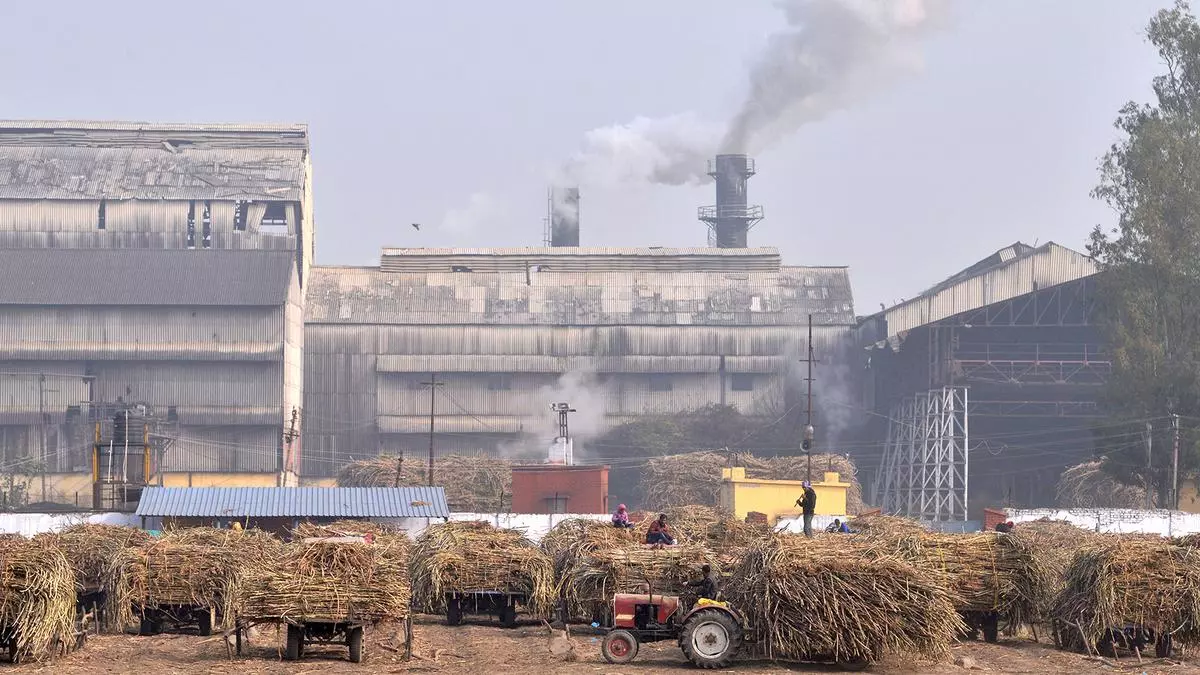From sugar to sustainability: Bioenergy solution for a greener tomorrow
The significance of sugar production in India for a greener tomorrow lies in its power as a source of bioethanol, a renewable biofuel. As the world is scuffling with the lessening of fossil fuel reserves, sugar production in India can be part of a system that can reduce dependency on fossil fuels.
While the need for sustainable energy sources is becoming critical and bioenergy, derived from organic matter like sugarcane, is emerging as a promising solution, India is in a prominent position of bioenergy revolution. A leading sugarcane producer, India is leveraging its sugar industry for a greener tomorrow.
India’s bioethanol journey
While bioethanol promotes climate protection, it is a fact that it reduces CO2 emissions considerably. Every kilolitre of bioethanol can save up to 1.5 tonnes CO2 emission, and more than 50 million tonnes of CO2 has been saved over the last 10 years through the ethanol-blended petrol (EBP) programme. India’s commitment to produce bioethanol and realise a greener tomorrow can also be witnessed by its recent achievements. As a milestone, India achieved the target of 10 per cent ethanol blending in petrol under the EBP programme in June 2022, 12.5 per cent in 2023 and has also started dispensing 15 per cent ethanol blended fuel; well ahead of schedule.
Advancing forward, the government has a target of 20 per cent ethanol blending in petrol by ESY (Ethanol Supply Year) 2025-26. The target not only demonstrates India’s dedication to sustainable energy solutions but also signifies a paradigm shift in India’s energy terrain, leading the way for a greener future.
Sugarcane production and a greener tomorrow
Indian sugar industry traditionally focuses on sugar production. However, it is evident that it holds immense potential to generate bioethanol – a clean-burning fuel that can be blended with petrol. Sugarcane cultivation plays a major role in it and the shift towards the production of bioethanol presents us an opportunity to reduce the dependence on fossil fuels. As a result, this shift will curb greenhouse gas emission and lead us towards a more sustainable future.
The significance of sugarcane in bioethanol production
While it is a fact that crops like corn and rice can be used for bioethanol production, sugarcane reigns supreme due to its efficiency and environmental benefits. Its suitability for bioethanol production stems from several factors:
Superior Yields: Sugarcane belongs to the C4 photosynthetic pathway, and compared to crops like rice or maize, sugarcane leads to higher biomass production. This signifies a greater yield of bioethanol per unit of land, making sugarcane a superior option in terms of bioethanol output.
Infrastructure: India is the possessor of a vast sugar industry and infrastructure which is favourable and crucial for large-scale bioethanol production. The mills in India can be adapted to include the facilities for bioethanol production, diminishing the need for a considerable capital expenditure.
Environmental Utility: As compared to gasoline, bioethanol derived from sugarcane is a clean-burning fuel and releases fewer greenhouse gases, leading to a notable reduction in carbon emission, contributing to a cleaner, greener tomorrow.
Economic Benefits of sugarcane-derived bioethanol
With increased bioethanol production, India can lessen its dependence on imported fossil fuels, resulting in greater energy security and a more stable trade balance. Not only this, but with a large-scale bioethanol production from sugarcane, the sugar industry can have opportunities to create jobs in rural areas, specifically for farmers and agricultural workers involved in sugarcane cultivation.
Since 60 per cent of the Indian workforce works in agriculture and biofuels are one of the most secure ways to boost farmers’ income, the production of bioethanol creates value-added opportunities for the Indian farming community.
The road ahead
Per the NITI Ayog, India is anticipated to witness an ethanol demand of 10.16 billion litres by 2025, indicating a significant market for biofuels. With such expectations, the Indian government has launched schemes like Pradhan Mantri JI-VAN Yojana to promote research and development in 2G ethanol production, a more sustainable alternative to traditional methods. Moreover, India’s participation in the Global Biofuels Alliance promotes international cooperation in biofuel development.
Also, in line with India’s objective, Sustainable Aviation Fuel (SAF) — procured from non-petroleum raw materials that reduces emissions from air transportation — with a clear blending roadmap, appears to be the next major opportunity which will make India an export hub.
While the World Environment Day serves as a reminder of our planet’s ecological fragility and the pressing need for sustainable solutions, bioethanol production from sugarcane presents a viable and sustainable solution for India's energy needs. With its expansive sugarcane industry, India can achieve a two-fold objective of controlling environmental pollution and propelling economic growth.
As we acknowledge the significance of bioenergy solutions in creating a cleaner and greener tomorrow, India’s pioneering efforts in its sugar industry can be an inspiration for other nations to embrace biofuels, embark on a sustainable energy journey, and contribute to a cleaner and more secure energy future.
The author is Director General at the Indian Sugar and Bio-Energy Manufacturers Association (ISMA). Views are personal
